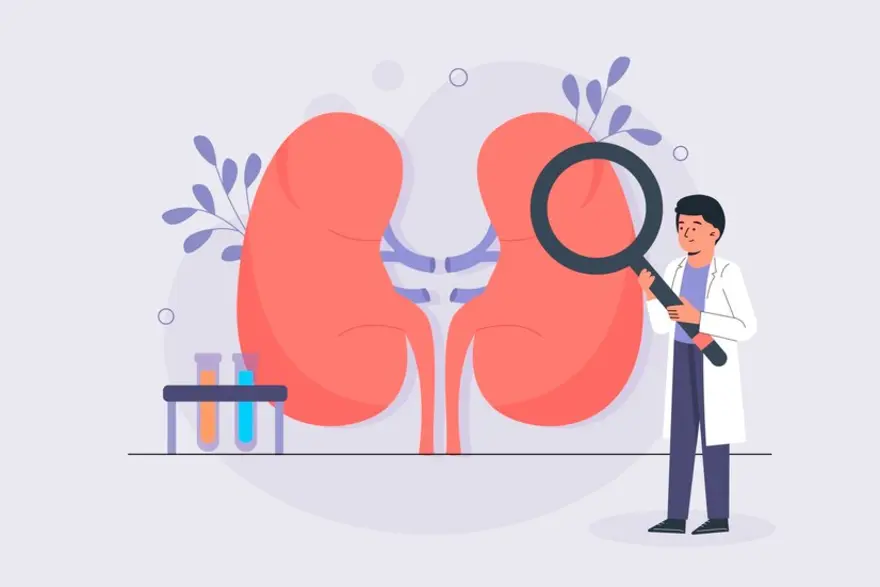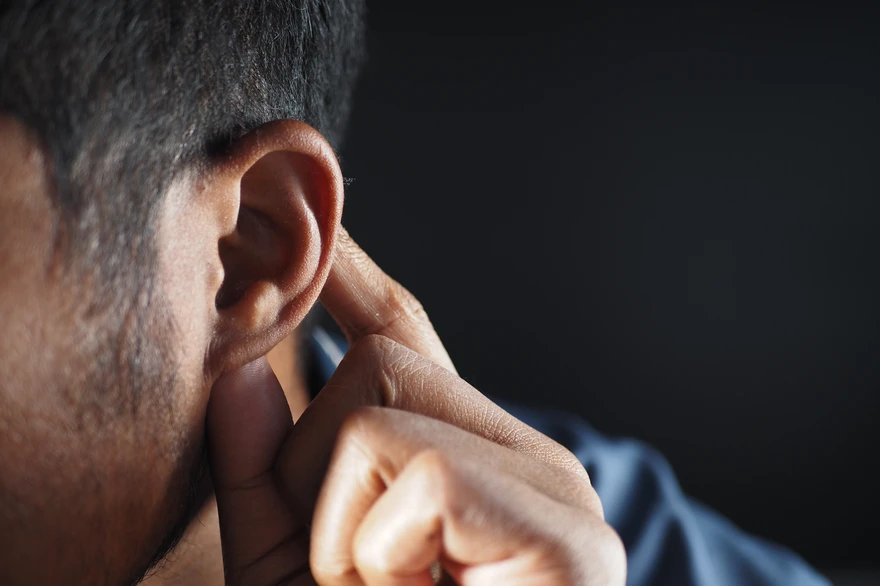Preventive Healthcare
Priapism: Causes, Symptoms, and Urgent Treatment Options
52 Views
0

What is Priapism?
Priapism is a rare but serious condition which is characterised by a prolonged erection of the penis, often occurring without any sexual stimulation. This full or partial erection can last for hours and may lead to distress, embarrassment, and serious health complications if not treated quickly.
Priapism isn't merely an extension of sexual desire. It's a medical condition that warrants immediate attention, especially if an erection persists for more than four hours. The term "priapism" is derived from Priapus, a Greek god renowned for his oversized, permanent erection. However, the reality of priapism is far from divine; it's a medical emergency that could result in permanent damage if not treated promptly.
What are the types of Priapism?
There are two main types of priapism: ischemic and nonischemic priapism.
- Ischemic Priapism, also known as low-flow priapism, occurs when blood becomes trapped in the penis due to inadequate venous drainage or malfunction of smooth muscles within the erectile tissue. Ischemic priapism is more common and requires immediate medical attention to prevent tissue damage due to lack of oxygen.
- Nonischemic Priapism, also known as high-flow priapism, occurs when there is an unregulated blood flow into the penile tissues due to injury or trauma. In this type, the penile tissues continue to receive some oxygen supply.
- A less common form is stuttering priapism, characterised by recurrent episodes of prolonged erections that are more frequently seen in men with sickle cell disease.
How Common is Priapism?
Although priapism is quite rare, it is more common in certain groups, particularly those with sickle cell disease, affecting about 30% to 45% of these individuals. It usually affects males aged 30 and older, but can also emerge during childhood among males with sickle cell disease. Despite its rarity, the seriousness and potential health implications demand that everyone stay informed about this condition.
What are the Symptoms of Priapism?
Priapism symptoms vary based on its type.
- In ischemic priapism, symptoms include an erection lasting more than four hours that is not related to sexual arousal, a rigid shaft of the penis (while the tip remains soft), and increasing pain in the penis.
- Nonischemic priapism features an erection lasting over four hours without sexual stimulation, but the penis isn't completely rigid. This condition is usually less painful than ischemic priapism.
What is the Main Cause of Priapism?
The root priapism cause remains unknown in 33% of all cases. However, several health conditions and factors could trigger this condition. It includes conditions like sickle cell disease, blood cancers such as leukemia, malaria, thalassemias, and penile cancer, along with spider bites and carbon monoxide poisoning. In addition, certain medications for erectile dysfunction and certain recreational drugs can also lead to priapism.
Is Priapism Contagious?
Priapism isn’t contagious. It doesn't spread through sexual intercourse or any form of contact with a person experiencing it. It's a strictly physiological condition arising from specific underlying health issues or triggers.
Who Does Priapism Affect?
Priapism can affect in anyone with a penis across all age groups, (even very rarely in newborns). It's seen most commonly in two specific age groups: children aged 5 to 10 and adults between 20 and 50 years old.
What are the Complications of Priapism?
If not treated, priapism causes can permanent damage to the penis. The trapped blood will eventually run out of oxygen, harming the penile tissues. Ongoing priapism can lead to tissue damage and may result in erectile dysfunction. Therefore, it's important to seek emergency care if an erection lasts longer than four hours.
How is Priapism Diagnosed?
Diagnosing priapism starts with a thorough review of medical history and a physical examination. The healthcare provider may ask about how long the erection has lasted, any previous medical conditions or injuries related to the genital area, and the use of medications or recreational drugs. Additional diagnostic tests recommended includes blood tests, urinalysis, and Doppler ultrasounds, to identify what triggered priapism symptoms.
What Tests will be Done to Diagnose Priapism?
To diagnose priapism definitively, healthcare providers may take a small blood sample from the penis to measure its oxygen level. The colour of this blood can help determine whether it is ischemic or nonischemic priapism.
A Doppler ultrasound can also be used to evaluate blood flow in the vessels. In certain cases, a toxicology screen might be conducted to detect any substances that could be contributing to the priapism.
How Do You Fix Priapism?
Priapism is a medical condition characterised by an extended and painful erections that can persist for hours without sexual arousal. It is important to understand these priapism symptoms, such as an erection lasting longer than four hours, to ensure timely treatment. If left untreated, priapism can result in permanent damage to the erectile tissue and may cause erectile dysfunction.
The approach to priapism treatment differs based on its type: ischemic priapism, which involves low blood flow, or non-ischemic priapism, which involves high blood flow. For ischemic priapism, where blood becomes trapped in the penis, immediate intervention is essential. Healthcare providers may apply a cold compress to reduce swelling and numb the area. They often perform a penile aspiration, a procedure that involves using a needle and syringe to draw out excess blood from the penis. In some cases, medication such as phenylephrine may be injected to constrict blood vessels and alleviate the erection.
Non-ischemic priapism, usually resulting from trauma or injury, may resolve on its own but can be treated with observation or surgery if needed. Understanding the priapism causes, like certain medications, blood disorders, or nerve injuries, can aid in prevention and timely management, leading to better outcomes for those affected.
Will Masturbating Make Priapism Go Away?
In some cases, masturbation or sexual intercourse may provide temporary relief from the erection. However, these methods are not reliable priapism treatments and won’t solve the underlying problem. It is important to seek immediate medical help if you experience a persistent and painful erection.
How Soon After Treatment Will I Feel Better?
The recovery period from priapism largely depends on its cause and severity, and how promptly it was treated. In minor instances, relief could be immediate post-treatment. However, in severe priapism cases where surgical intervention was required, recovery might take longer.
Can Priapism be Prevented?
Prevention is indeed better than cure; but when it comes to priapism, it’s not always applicable. This is because a large proportion of cases occur without a known cause. Understanding the potential triggers can help manage the condition and reduce its frequency.
Certain health conditions like sickle cell disease, blood cancer (leukemia), and malaria are known to result in low-flow priapism. Recreational drug use and certain medications can also trigger this condition. Therefore, managing these conditions and avoiding the misuse of such substances can indirectly help prevent priapism.
It’s also important to understand that priapism is not contagious, so it cannot be spread through sexual intercourse.
How Long Does Priapism Last?
An erection lasting longer than four hours is considered as priapism. In some instances, there may be recurring episodes of prolonged erections, which are known as stuttering or intermittent priapism.
Remember that any erection lasting more than four hours without any sexual stimulation should be considered a medical emergency. The trapped blood can reduce oxygen supply to the penile tissues, potentially causing serious complications if not treated quickly.
What is the Outlook for Priapism?
When managed effectively and promptly, the outlook for priapism can be quite positive. An early intervention help in preventing a permanent damage to the penis and safeguard sexual function.
Delaying priapism treatment can result in erectile dysfunction and other complications. This emphasises the importance to seek a prompt medical attention if you think you are experiencing symptoms of priapism.
How Do I Take Care of Myself if I Have Priapism?
Living with priapism requires some lifestyle adjustments, awareness, and prompt medical treatment when necessary.
Here are some practical tips:
- Be Observant: Monitor your body for any signs that could indicate priapism, like an erection lasting longer than normal or occurring without sexual arousal.
- Seek immediate medical attention: If symptoms occur, consult your healthcare provider immediately. Early treatment is essential to prevent complications related to priapism.
- Maintain a healthy lifestyle: Regular exercise, a balanced diet and adequate sleep contribute to overall health which can help manage associated conditions like sickle cell disease or blood cancer.
When to See a Doctor?
If you have an erection lasting more than four hours, seek emergency care. This duration is considered as the critical time frame after which damage to penile tissue could set in. Also, if you experience recurrent, persistent, painful erections that resolve on their own, consult your doctor as this may indicate stuttering priapism.
Can I Get Priapism While I’m Sleeping?
Yes, episodes of priapism can happen during sleep. However, it's important to remember that morning erections lasting no more than 30 minutes are normal and do not qualify as priapism.
Conclusion
Understanding priapism causes and symptoms of priapism is important for seeking a prompt medical attention. Being proactive about your health and making an informed choices can help prevent complications related to priapism.
If you are looking for a dependable diagnostic services for blood tests associated with conditions leading to priapism like sickle cell disease or blood cancer, you can consider Metropolis Healthcare. Their team of qualified blood collection technicians can collect samples from your home, and their advanced laboratories provide accurate test results, which are conveniently shared online through email and the TruHealth app. Metropolis Healthcare is your trusted partner in prioritizing your health.
 Home Visit
Home Visit Upload
Upload













1701259759.webp)









 WhatsApp
WhatsApp